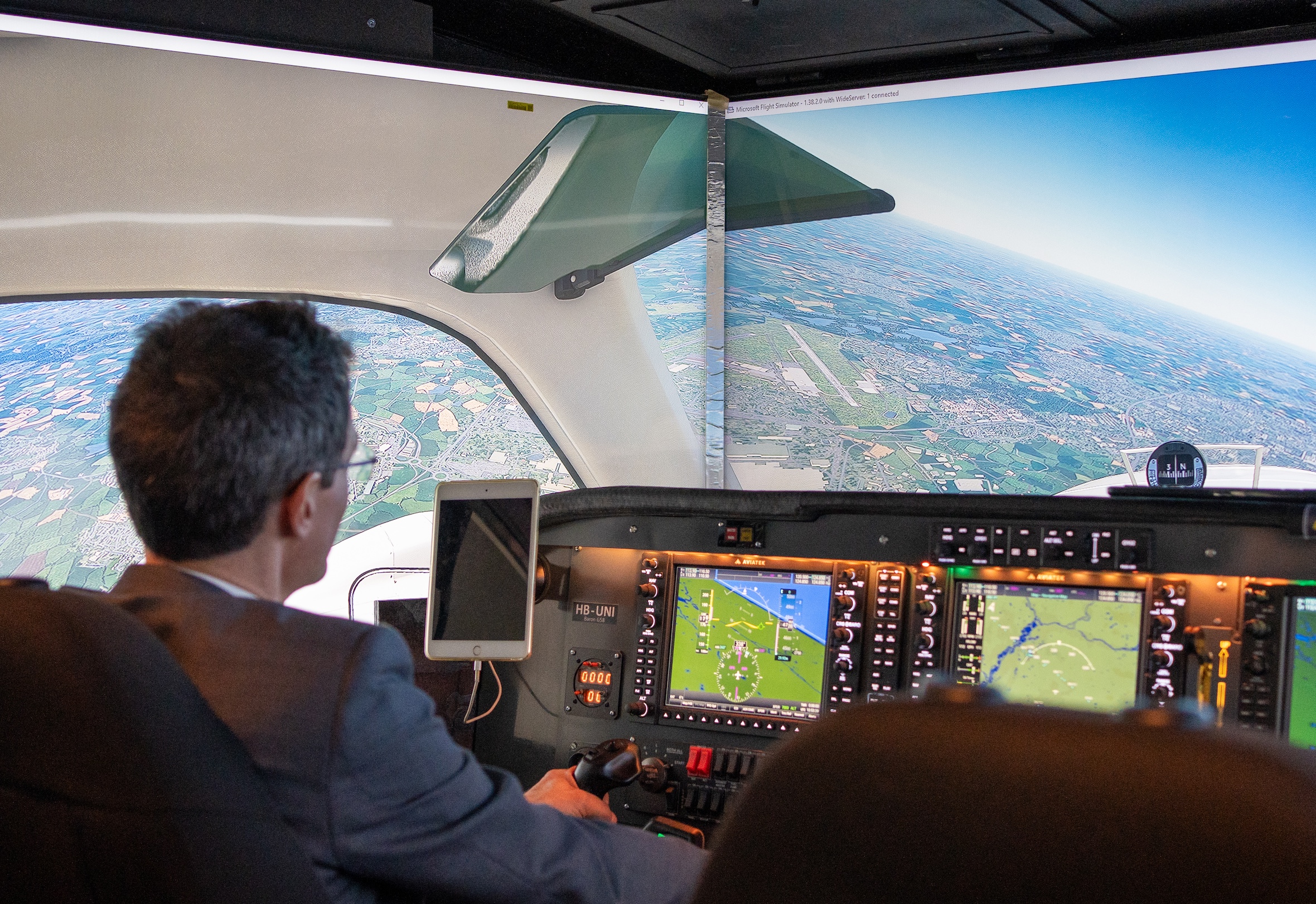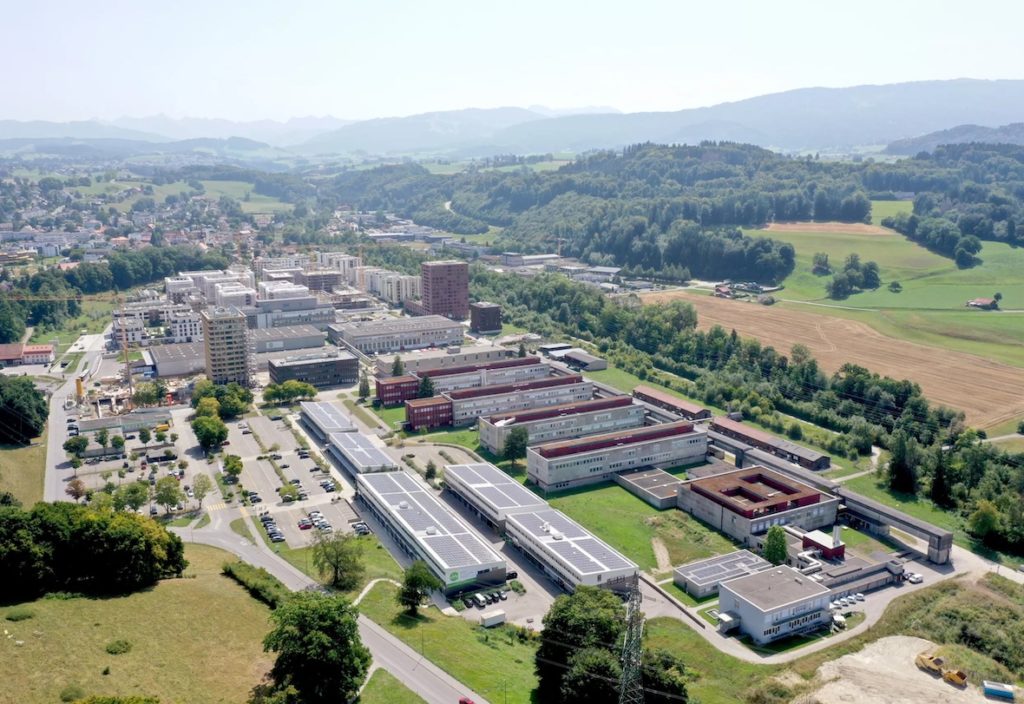
The University of Fribourg’s human-centered approach to medicine
 A high-tech simulator at the University of Fribourg reflects the hands-on, forward-looking approach of its Section of Medicine, where innovation, AI, and neuroscience converge to shape the future of healthcare. | © GGBa
A high-tech simulator at the University of Fribourg reflects the hands-on, forward-looking approach of its Section of Medicine, where innovation, AI, and neuroscience converge to shape the future of healthcare. | © GGBa
At the crossroads of tradition and innovation, the University of Fribourg’s Section of Medicine offers a distinct vision for the future of healthcare. As part of Switzerland’s only fully bilingual university, the Section of Medicine is advancing both education and translational research in a collaborative, human-focused environment.
Since the launch of its Master’s program in medicine in 2018, the Section of Medicine of the University of Fribourg has quickly emerged as a national leader in medical education. With over 30 professors teaching more than 1,000 students, the program has consistently ranked first or second nationwide in both theoretical and practical exams, an exceptional achievement for a relatively young program.
But Fribourg’s ambition goes beyond academic rankings. The Section of Medicine has teamed up with the University’s Department of Psychology and the Human-IST Institute to create an innovative interfaculty initiative that merges neuroscience and artificial intelligence. The goal: to develop neuro-inspired solutions for mental health challenges, an area of growing importance across healthcare systems worldwide.
This interdisciplinary mindset reflects a broader commitment to real-world impact. The University actively encourages the translation of discovery research into applicable technologies and therapies, supported by its Technology Transfer Office and regional partners such as Fri Up, the Economic Development Agency (FDA), and the Chamber of Commerce.
Fribourg’s medical faculty is embedded in a university that values agility, proximity, and collaboration. The compact scale of the institution fosters strong internal networks, personal communication, and cross-sector synergies, qualities that have become critical in addressing complex, multifaceted healthcare challenges.
By combining clinical excellence with bold new thinking, the Section of Medicine is not only shaping the next generation of doctors but also pioneering solutions at the intersection of medicine, technology, and society. In doing so, it reinforces Western Switzerland’s reputation as a fertile ground for medical innovation and interdisciplinary research.

